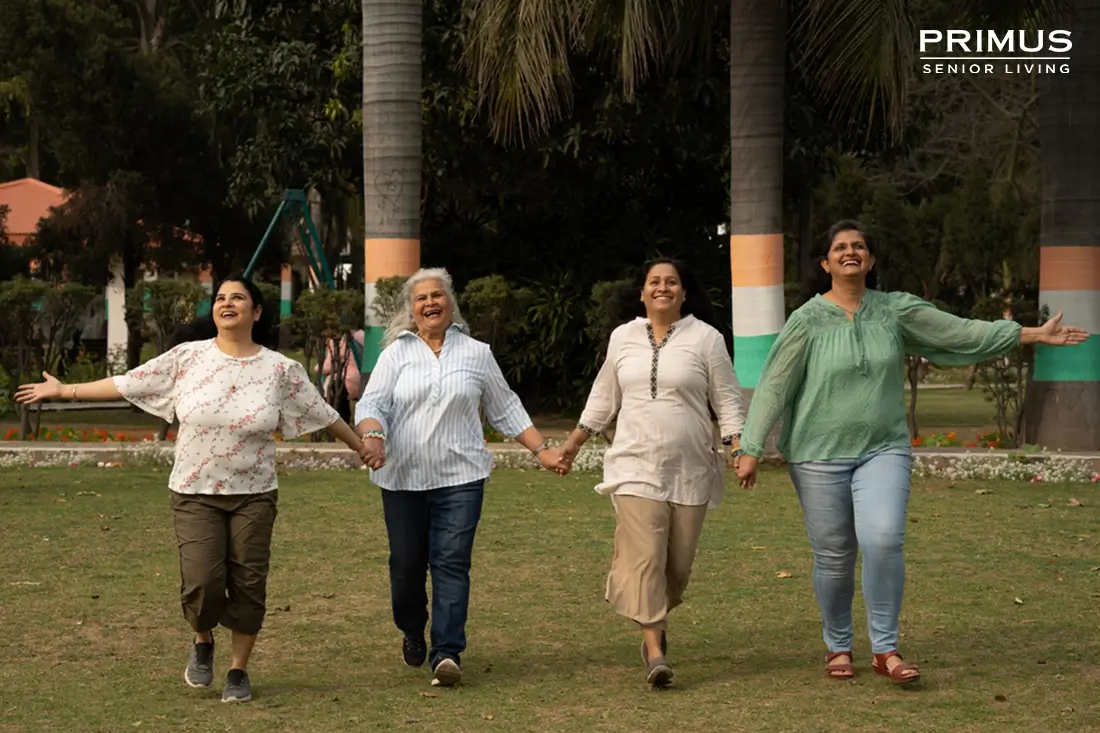Transitioning from living independently in a house to moving into a senior living apartment is a significant decision for many seniors. More than about changing addresses, it also marks a notable shift that involves leaving behind the familiarity of a longtime home in exchange for a community-oriented living space tailored to meet their evolving needs. It's also about finding a place where they can thrive, feel supported, and enjoy a fulfilling lifestyle.
In this blog, we will explore what this senior living transition entails, its impact on seniors, and practical tips for coping with the change.
How The Senior Living Transition Works
Moving to a senior living community also involves leaving behind the responsibilities of maintaining a house and gaining access to a community designed for older adults. These communities offer various levels of care, from independent living to assisted living and memory care, ensuring that seniors can receive the support they need as they age.
Senior living apartments are designed with accessibility in mind, featuring amenities like grab bars, wide doorways, and emergency response systems to enhance safety and comfort. Residents also benefit from shared spaces for socialising, organised activities, and onsite services such as dining options and wellness programs.
Impact On Seniors In Old Age
Senior living transition can have a significant impact on seniors' well-being, presenting both benefits and challenges. Here's a detailed look at the effects of this transition to assisted living:
Positive Impacts:
1. Alleviates Daily Challenges:
-
Mobility Issues: Senior living apartments offer facilities designed for easy navigation.
-
Home Maintenance: Communities handle maintenance, reducing stress for residents.
2. Promotes Independence with Support:
-
Supportive Environment: The senior living community balances independence with needed assistance.
-
Assisted Living Services: Provides tailored care for daily activities.
3. Enhances Social Interaction:
-
Community Living: Reduces loneliness and fosters new friendships.
-
Social Engagement: Transition to assisted living also offers ample opportunities for social activities.
4. Improves Access to Healthcare:
-
On-Site Services: Ensures timely medical care.
-
Health Monitoring: Regular check-ups improve overall well-being.
5. Encourages Active Living:
-
Vibrant Atmosphere: Senior living transition promotes activities and hobbies.
-
Enriched Life: Opportunities for fulfilling engagements.
Challenges:
1. Emotional Adjustment:
-
Leaving Home: Difficult to leave a long-time residence.
-
New Environment: Initial feelings of loss and loneliness.
2. Health and Well-being:
- Stress of Moving: The transition may be difficult initially.
- Adjustment Period: Temporary discomfort until settling in.
How to Cope with the Transition
Navigating the transition to assisted living requires emotional resilience and practical strategies:
-
Embrace the Change:
Approach the move with an open mind and focus on the positive aspects, such as newfound freedom from home maintenance and opportunities for social engagement.
-
Personalise Your Space:
Make your senior living apartment feel like home by bringing cherished belongings and decorating to reflect your personality. Creating a familiar and comfortable environment can ease the transition.
-
Stay Active and Engaged:
Participate in community activities, outings, and social gatherings to meet neighbours and build friendships. Engaging in hobbies and interests keeps life fulfilling and meaningful.
-
Seek Support:
Lean on family members, friends, and staff at Primus Senior Homes for emotional support during the transition. They can provide encouragement, advice, and assistance to ensure a smooth adjustment.
The Promise of Senior Living at Primus Senior Homes
At Primus Senior Homes, we understand that transitioning to a senior living community is a significant life change. For over 10 years, we have been committed to redefining senior living by offering services and amenities that enhance overall wellness and cater to individual preferences.
Our communities provide a supportive environment where seniors can lead active and engaging lifestyles. From nutritious dining options and wellness programs to social activities and personalised care plans, Primus Senior Homes prioritises the well-being and happiness of every resident.
The Bottom Line
Transitioning from an independent house to a senior living apartment community is a transformative journey that opens doors to new opportunities and enriching experiences. At Primus Senior Homes, we invite seniors to embrace this change with confidence, knowing they can enjoy a fulfilling lifestyle surrounded by a supportive community.
Discover the joy of senior living at Primus Senior Homes, where you can pursue your passions, connect with others, and live life to the fullest. Contact us today to learn more about our senior living options and how we can support you in this exciting new chapter.
You may also like

The Joy of Senior Living: Why Retirement Homes Are Awesome!
You've spent a lifetime working hard, raising a family, and navigating life's ups and downs.
READ MORE
How Proactive Care Is Changing The Senior Living
Care has always been, especially for the older people, reactive and fragmented for years. Our traditional care system for older people never had the tools, technologies, or managerial perspective required for providing proactive care. However, the times have changed. Gone are those days when we waited for the symptoms to show up to treat a condition. The biggest proof of this change is the senior living communities like Primus. Primus offers a complete and organised senior care through a robust ecosystem.
READ MORE

Leave a Comment